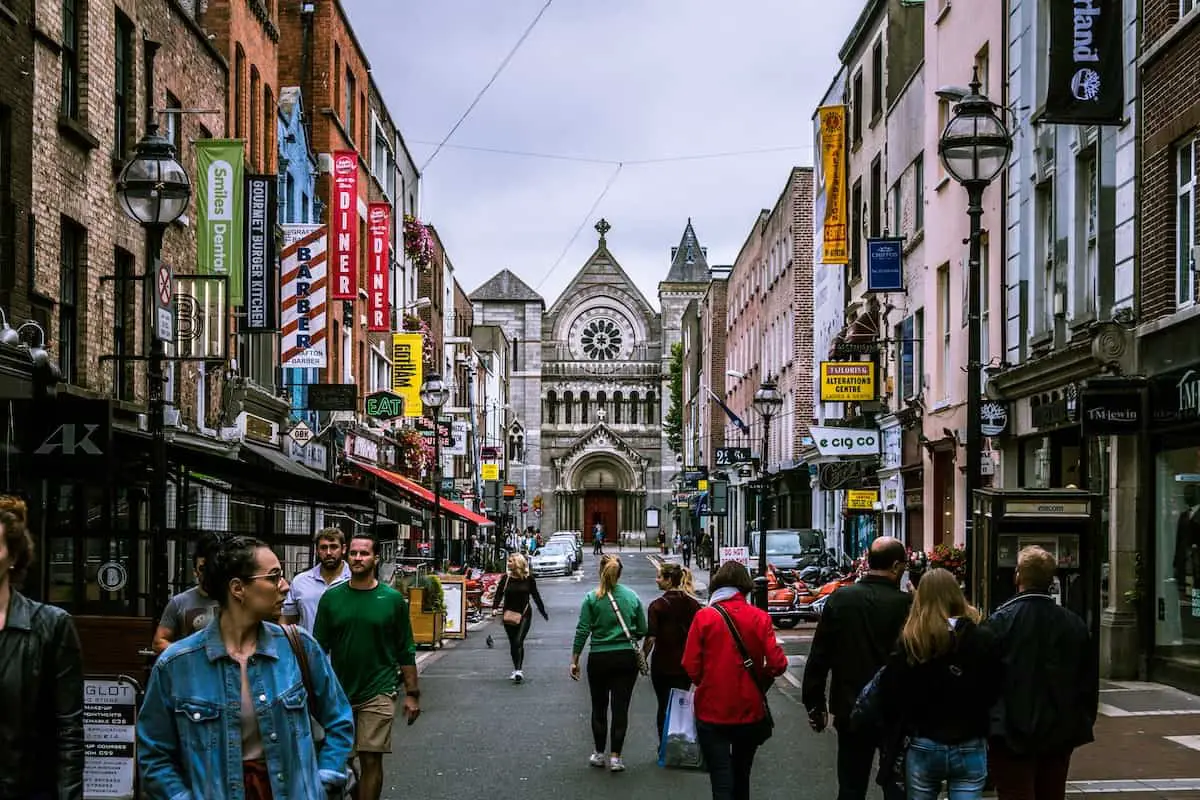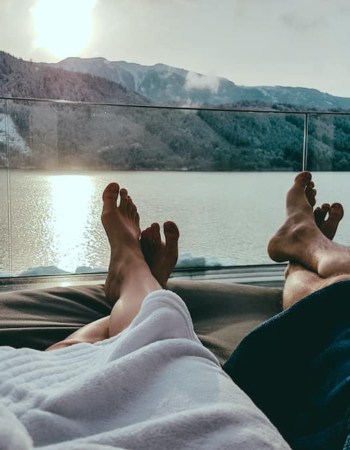Every traveler experiences the world differently and has a different approach to travel. If you are curious to find out which type of traveler you are and learn more about other traveler types, this content is made for you.
There are 13 different types of travelers. If you are wondering which one are you, travelers can be divided into 5 main groups:
- Types of travelers based on timing preferences
- Types of travelers based on budget
- Types of travelers based on company preferences
- Work and travel types of travelers
- Types of travelers based on traveling goals
If this classification has caught your eye, and you’d like to learn more about different types of travelers and which one are you, continue reading. These are the 13 different types of travelers.
What are Different Types of Travelers?
Different categories of travelers are broad definitions of what makes groups of travelers unique. While some are primarily motivated by learning about different cultures, others are excited to explore the world on a budget or test their limits. Some travel for leisure, while others make money on the road.
No traveler is alike. That being said, being a part of one group of travelers does not limit your experience as a traveler, and you easily can fit into more than one category. These are the types:
Types of Travelers Based on Timing Preferences
Some prefer short and sweet trips, while others enjoy taking time to experience cultures and new places. There are two main categories of travelers that fit into this group: short-term travelers and long-term travelers.
City Break and Short-Term Travelers
With this group of travelers, the focal point of interest lies in weekend trips, city breaks, and short journeys. Be those in a homeland or abroad, the excitement lies in a desire to get the most from a short stay. The primary idea is usually to see the main hotspots, and attractions, experience something new, and change the scenery for a few days. For the sake of convenience, this can involve traveling agencies and organized tourist guidance, although some short term-travelers like to make their own customized bookings.
Long Term Travelers
Long Term Travel is geared towards gathering a profound travel experience and learning about the new place as if you were a local by staying in the area for a long period. Long-term travelers usually stay in a place anywhere from a few weeks to a few months. The stay can even extend to a year or two. This allows one to experience culture and go beyond the first impression of a country or a specific place, connect with and befriend locals, and immerse in their way of living. This gives them an opportunity to experience the way people live and become one with a foreign culture for some time. The experience is always enriching.
Types of Travelers Based on Budget
Budget is an important variable when traveling as it determines the accessibility to traveling commodities and requires travelers to prioritize when traveling. To a large extent, budget determines travelers’ accessibility to desired accommodation, transportation, catering, and all other aspects of travel. Based on budget, travelers can fit into three categories:
Backpackers & Budget Travelers
Backpackers and budget travelers have one thing in common – they travel light, and look for affordable accommodation and transport options. Their goal is to experience the most while traveling with limited finances.
The focus is not on spending in a foreign or homeland land, but on broadening horizons, and embarking on an adventure while finding alternative, budget ways to do that. Budget travelers are resourceful, know how to prioritize when packing and traveling, and are known for being economic. They are open to renouncing some travel commodities if needed to get to experience another culture and learn about their art, history, and people.
Luxury Travelers
The traveling style of luxury travelers can be described as comfortable and prestige oriented. These travelers don’t mind spending when on the road, be it on five-star accommodation, first-class flights, or private adventures. Thanks to a flexible budget, this includes the best experiences, and services as these travelers aim to get the most of all commodities when traveling. High fashion shopping, visiting VIP places, and getting the most exclusive excursions are just some of the perks luxury travelers put a high value on.
Flexible Budget Travelers
Those traveling on a flexible budget have more and are willing to afford more traveling commodities while traveling. The budget isn’t tight but still doesn’t fall into the luxury category. Instead, these travelers refer to feeling financially comfortable when traveling and are willing to spend for excursions, historic sights visits, local food, or events, but not go financially overboard with the experience.
For this reason, their traveling style often fluctuates between budget and depending on their main motivation and traveling priorities while traveling are. They are willing to spend for some experiences but are also willing to cut the budget if needed to get both the comfort and the maximum experience for the value.
Types of Travelers Based on Company Preferences
Some enjoy exploring the world on their own, while others would rather share the experience with someone else. Based on their company preferences, travelers can be:
Travelers Who Prefer Traveling in Groups and Pairs
Group travelers and those who travel in pairs enjoy the benefit of sharing travel memories with familiar folks. Be it an organized journey with family or friends, or travel in a personal regimen, travelers who prefer traveling in groups often see good company as a precondition to embarking on any journey. Based on what travelers highlight on Fodors based on their experiences, traveling in groups and pairs is a chance to not only get to know the new place or culture but also get to know the people you travel with better.
Solo Travelers
Solo Travelers prefer to experience the world in solitude and on their own terms. Unlike traveling in groups which requires a lot of compromises, tolerance, and accommodating everyone’s needs, solo traveling allows you to go after your primary travel objectives. While others may deem this traveling style lonely, solo travelers thrive in their independence regarding booking accommodation, excursions, or transport.
Work and Travel Types of Travelers
Work and travel travelers combine work with the pleasure of traveling. Some travel because they have to, while others choose to work and travel abroad. This group includes two types of travelers:
Business Travelers
Business travelers are more or less frequently on the road. Travel is a part of their job description, and often a means of making business connections, connecting with associates, and a necessary step to get the work done. This can but isn’t necessarily entwined with other travel styles or travel goals, as, unlike others, business travelers sometimes travel out of necessity. Their work demands staying in quiet spaces that ensure both comfort and space for solitude in order to get the job done.
Digital Nomads
Tech-equipped and always on the go, digital nomads not only work remotely but also blend work and travel. Although the duration of their travel can vary, it is usually longer than those traveling for business. These folks experience the benefits of being a traveler and learning about places and cultures while doing their job online. Their location-independent job allows them to earn for travel and travel while experiencing a new culture. Similar to the previous group, their lifestyle requires some privacy for work, which dictates their accommodation preferences. However, according to Flyertalk travelers, digital nomads can still get the full hostel experience and enjoy the benefit of staying in co-working hostel spaces.
Types of Travelers Based on Traveling Goals
Travelers can also fit into different categories based on what their traveling goals are. Regardless of their preferred traveling style, travelers can be motivated by different things and enticed to travel to fulfill different needs. Motivation and inspiration to travel can come from different sources, be those special interests, hobbies, different traveling needs, and traveling goals. Based on their primary motivation to travel, travelers can fit into the following groups:
Thrill Seekers & Adventurers
For thrill-seekers, adrenaline and the sense of adventure play a key role. Mountain biking, snowboarding, sky-diving, kayaking, parachuting, or camping in the wilderness are common goals for these folks. Adventurers enjoy feeling challenged and testing their limits, which is why extreme sport, exploring secluded areas, and the unknown rank high on their priority list. Be it an adventure in nature or an urban area, a hunger for excitement is always the key component.
Holidaymakers
In the case of holidaymakers, the need for relaxation and personal wellness always comes first. They are primarily vacationers and quality leisure time is the main goal. More than anything, these travelers see travel as an escape from busy routines and often opt for destinations that allow them to truly let loose and enjoy the simplicity of their journey. Because travel is seen as an opportunity to get comfortable, guided tours, agency-organized travel, and all-inclusive options are frequently highly sought.
Special Quest Travelers
Special quest travelers travel for a higher purpose and with a defined goal in mind. Their motivation for travel is religious, and their journeys are organized in ways that support that. Travel is not just done for relaxation and excitement but has a greater mission. Religious tourism involves traveling for spiritual healing and cleansing or pilgrimage. This can include visiting holy places such as churches or temples, as well as learning about religious and spiritual artifacts.
Cultural Travelers
Travelers who belong to this group make it their greatest priority to get to know a foreign culture. This includes connecting with locals, trying local ways of living, dining, and learning a foreign language abroad. Cultural travelers use their time abroad to educate themselves about different ways of living and learn about people’s customs, history, and art. Museums, education centers, galleries, as well as places of national and international heritage. Everything from national cuisine to learning about nationalities by experiencing life as a local is a form of first-hand education that makes travel worthwhile.
Conclusion
In the end, no one knows you and your travel habits more than you know yourself. The types we listed are some of the most common types you can meet while exploring the world.
Traveler’s typology is a chance to get to know yourself and other travelers better, find your traveling tribe, or simply have fun defining what matters to you and where your traveling priorities truly lie.
References:
- Flyertalk: Hostel with co-working space. URL retrieved from: https://www.flyertalk.com/forum/budget-travel/2068183-hostels-co-working-space.html
- Fodors: Pros and cons of a group of three. URL retrieved from: https://www.fodors.com/community/europe/pros-and-cons-of-a-group-of-three-150373/




